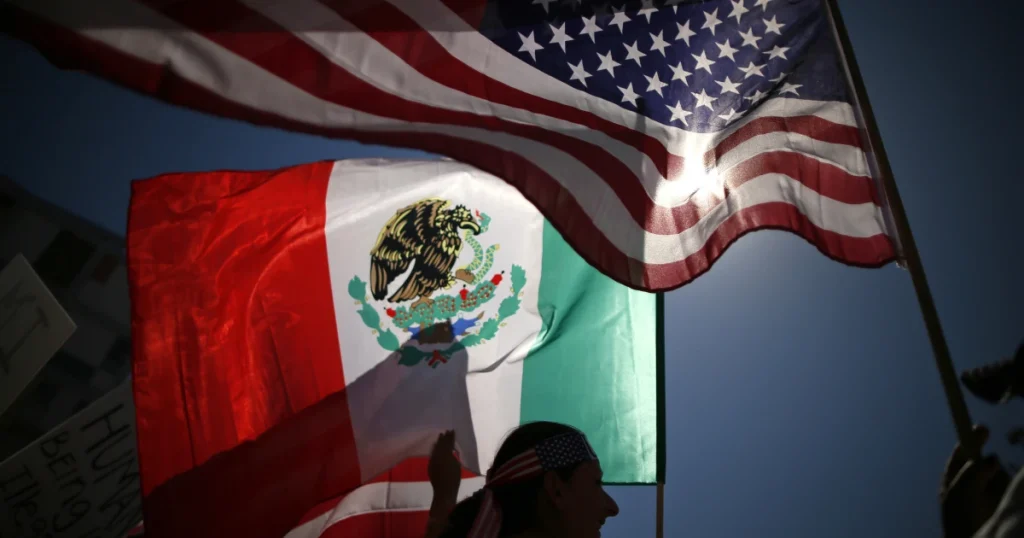The meanest word for Mexican-Americans is “beaner,” and it’s considered very hurtful. This word has a bad history and is connected to hate crimes against Latinos. It started because of Mexican food, and it’s part of a pattern where mean words in the U.S. focus on what people eat or wear. Even though it seemed like people were using it less, recent events, like it showing up in a New York Times crossword puzzle, caused problems and showed that hate crimes against Latinos are still a concern.
Origin of the slur “Beaner”
It still amazes some individuals that the worst epithet for Mexican-Americans exists.
“Beaner” became a derogatory term in the early 1900s. The name “bean-eater,” which derogatorily refers to Mexicans due to their excessive bean consumption, is where it originated. “Beaner” was originally a positive term, as in “cool beans,” but it eventually became derogatory toward Mexicans. It’s likely that Orange County residents began misusing it in the 1960s. “Beaner” was originally used in Orange County and Long Beach in the late 1960s and early 1970s, according to the Dictionary of American Regional English (DARE).
You may also like: Cavazaque :A Complete Journey to Its Origins and Future Implications
What is the Meaning of the Slur “Beaner”
The mean word “beaner” comes from “bean-eater,” which wasn’t nice to Mexicans because they eat a lot of beans. At first, “beaner” meant something good, like saying “cool beans,” but later it became a bad word against Mexicans. People in Orange County probably started using it in a bad way in the 1960s. The Dictionary of American Regional English (DARE) talks about “beaner” in the late 1960s and early 1970s, with some of the first uses in Orange County and Long Beach.
How has the use of the slur “beaner” been addressed in popular culture?
In popular culture, the slur “beaner” has been addressed in various ways. Here are some notable instances:
New York Times Crossword Controversy: The word “beaner” was used in a crossword puzzle clue by the New York Times in 2019, which caused controversy. “Pitch to the head, informally,” was the clue, and using that phrase caused controversy. The Times then issued an apology for including the offensive word in the puzzle.
Name Changes: Wussow’s Concert Cafe supplanted Beaner’s Central, a Duluth, Minnesota coffee store, in 2019. The owner stated that although the name had been chosen quietly twenty years before, many people now found it uncomfortable and nationalistic.
Film and Comedy: The term has been used in films like “Cheech and Chong’s Next Movie,” “Gran Torino,” “Breaking Bad,” “Donnie Brasco,” and “The Morning After.” Comedians like George Lopez and Carlos Mencia have also used it for comedic effect.
Social Media Usage: While some Mexican-American teens use “beaner” on social media among themselves, there have been instances of non-Latinx individuals using the term inappropriately. This has sparked discussions about who should be allowed to use such slurs and the impact they can have.
These instances show the various ways that the term “beaner” has been used in popular culture, including name changes, debates, and media and comedic portrayals.
How do Mexican-Americans feel about the Slur “Beaner”?
Some Mexican-Americans have different feelings about the word “beaner,” which is a mean term. While some try to use it in a positive way, many still think it’s not okay for people who are not Latino to say it. This word has a history of being used to be mean to people, making them feel left out. Recent things, like a Starbucks worker writing “beaner” on a customer’s cup, have made people talk about how words like these can be hurtful. Using “beaner” has been connected to hate crimes against Latinos, showing we need to be more aware and careful about using such words.
What are some other Slurs used against Mexican-Americans?
People say mean words about Mexican-Americans like “spic,” “slut,” “wetback,” and “whore.” These words are not nice and make fun of people because of their race or other things about them. Even though some groups try to use these words in a positive way, most people agree that these words are not okay and just spread bad ideas about others.

